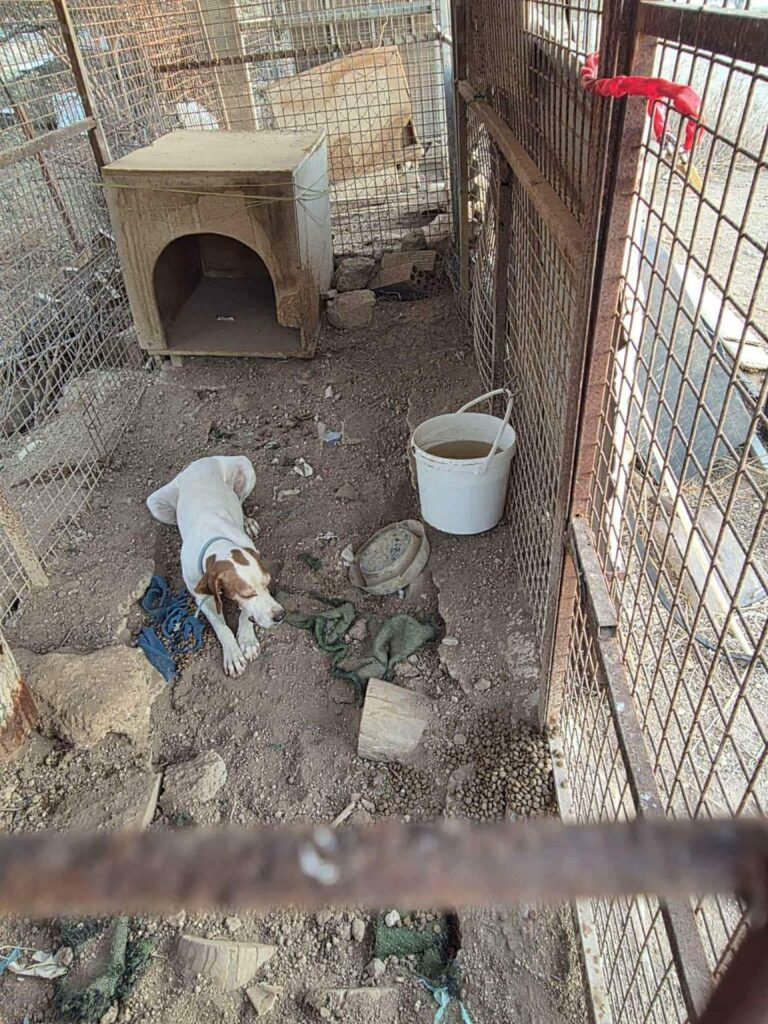Filenews 4 October 2025
Cyprus is facing a critical crossroads for animal protection. Although the Animal Protection and Welfare Law of 1994 was a milestone in the protection of animals from abuse, neglect and cruelty, three decades later reality shows that the existing framework is not sufficient.
As social perception evolves and veterinary professionals and animal shelters face increasing challenges, it has become clear that the existing legislative framework needs modernization.
Since the establishment of the Animal Police in 2021, reports of abuse have shown an alarming rise, however reactions from the state and convictions remain very limited, with the main obstacles being the inconsistent implementation of the legislation.

This year's World Animal Day on October 4 reminds us that it is time to take action and stand up for those who have no voice. It is an opportunity not only for awareness, but also for substantial changes that will shield animal welfare in Cyprus. Our country is facing a serious crisis of animal abandonment.
On the occasion of World Animal Day, the President of the non-profit organization Simba Animal Aid, Mrs. Natasa Michaelidou, stated that "We are not just talking about neglect, we are talking about an ongoing crisis that requires political will and reform", adding that "In Cyprus, over 250,000 dogs are abandoned annually, exacerbating the problem with strays. The Cyprus Society for the Protection of Animals (CSPCA) has declared its intention to refer the state to the Council of Europe, due to the failure to supervise animal welfare."
The weaknesses of the current framework
Despite the amendments made to the Dogs Law from 2002 until today, experts point out that the implementation remains fragmented, with an unclear distribution of responsibilities and incomplete control. The new reform being discussed by the Parliament in 2025 aspires to close these gaps by bringing Cyprus into line with the recent decisions of the European Parliament (June 2025), which adopted a text with amendments to the proposal for a regulation on 'Welfare and traceability of dogs and cats'.
Points to be included in the national legislative framework
- Microchip: Mandatory marking of all dogs, registration in a central registry, inspection by a veterinarian. (European amendments: 182 (Art. 17, §2), 204 (Art. 19, §1))
- Housing: The dog should live in the same residence as its owner, in order to strengthen responsible ownership and avoid abandonment. (Addition of national legislation: Article 3 of the Dogs Act (184(I)/2002).
- Sterilization: Compulsory, with exceptions with a higher fee for unsterilized people. Cost of microchip / sterilization by a new owner. (European Amendment: 209 (Article 20a, §2d and Article 7 on Dogs — Premises/concession). Practice for adoption: In case of receipt of a dog from community premises, the new owner undertakes the cost of the microchip and sterilization, while the animal's health booklet is presented.
- Euthanasia: Ban the euthanasia of dogs in shelters as a population management measure. This practice should be allowed only for health reasons, with a documented opinion of a veterinarian. (European amendment: 147 (Article 13, §2a))
- Guide dogs: Full protection and access to public spaces and transport. Practice for adoption: Ensure their full legal protection and the right of access to public spaces and all means of transport as is done for example in countries such as France.
- Veterinarians: Mandatory microchip check before providing any service. Unmarked dogs should not be accepted, in order to enhance compliance. (European Amendments: 182 (Article 17, §2), 204 (Article 19, §1). Practice for adoption: About Dogs – The license to keep a dog is issued with an application stating its address of residence and with a certificate or health booklet from a registered veterinarian, who must check for a microchip, while dogs without a tag are not accepted.
In addition, Ms. Michailidou emphasizes the need to strengthen responsible ownership, so that the living conditions of dogs correspond to what they are really entitled to. At the same time, he proposes the substantial involvement of veterinarians, who should check the existence of a microchip before each service provided.

The road ahead
"Changing the law alone is not enough. Synergy is needed between the state, local authorities and citizens", notes Ms. Michailidou. If the new regulations are implemented in practice, Cyprus can turn the page: ensure better conditions for animals and reduce the chronic problem of abandonment and abuse. Already in 2025, the Parliament is reconsidering changes aimed at more effective implementation, clearer distribution of responsibilities and improving the management of stray animals. "Something must be done immediately. The situation is no longer manageable," emphasizes the president of the shelter. The issue, as he says, does not only concern animal welfare organizations. It concerns the legislative framework itself and the role of MPs, who are called upon to vote in favour of measures capable of changing our mentality about what really means dignified and proper living for dogs.
